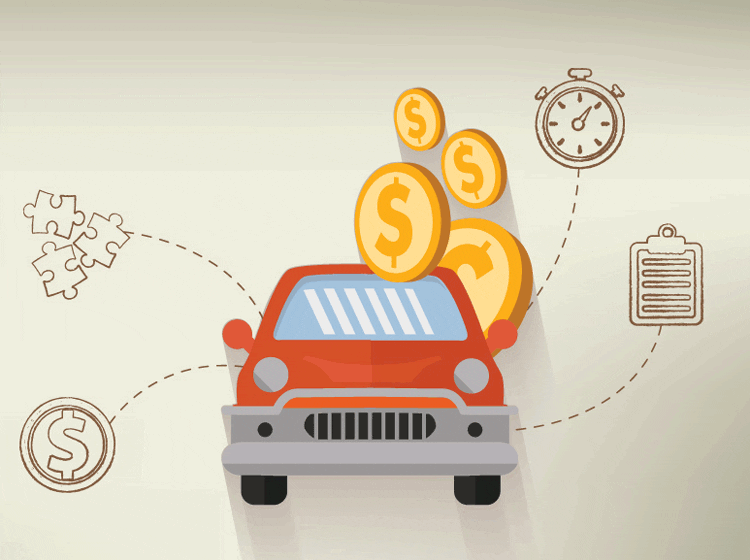
What is Auto Financing?
Auto financing refers to the process of borrowing money to purchase a vehicle. The loan is typically repaid in installments over a fixed period, usually ranging from 36 to 72 months. The financing can be arranged through various channels, including banks, credit unions, online lenders, and dealership financing.
Types of Auto Financing
When financing a car, buyers can choose from several different financing options. Each comes with its own advantages and drawbacks, so it’s important to understand what they entail before making a decision.
1. Dealer Financing
Many car dealerships offer financing through their own in-house financing or through partnerships with banks and lenders. Dealer financing can be convenient, as it allows you to complete the purchase and financing process in one location. Dealerships may offer promotional financing deals, such as low or 0% interest rates for buyers with good credit.
- Pros: Convenient, possible special deals (e.g., low interest rates), and the ability to negotiate financing terms.
- Cons: May have higher interest rates for buyers with less-than-perfect credit; limited to the dealership’s available lending partners.
2. Bank or Credit Union Financing
Banks and credit unions are traditional sources for auto loans. They offer competitive interest rates, especially if you have a good credit score. Credit unions, in particular, tend to offer lower rates than banks and are often more flexible in lending.
- Pros: Potentially lower interest rates, more flexible terms, and higher customer service.
- Cons: The application process can be more time-consuming, and you may need to meet specific requirements for approval.
3. Online Lenders
Online lenders have become an increasingly popular option for https://www.truth in24.com/. Many online platforms allow you to apply for a loan, receive an approval decision quickly, and even compare rates from multiple lenders without visiting a bank or credit union.
- Pros: Fast application process, ability to compare different rates from multiple lenders, and convenience.
- Cons: Rates may vary depending on your credit score; fewer customer service options than banks or credit unions.
4. Leasing
Leasing is another option for those who want to drive a new car without the long-term commitment of buying it. When you lease a car, you essentially rent it for a set period, often 24 to 36 months. At the end of the lease, you can return the car or buy it for a predetermined price.
- Pros: Lower monthly payments compared to buying, the ability to drive a new car every few years.
- Cons: Mileage limits, no ownership of the vehicle, and potential fees for excessive wear and tear.
Key Factors Affecting Your Auto Financing Deal
When applying for auto financing, there are several key factors that lenders will take into account before approving your loan. Understanding these factors can help you secure the best possible terms.
1. Credit Score
Your credit score plays a crucial role in determining your eligibility for a loan and the interest rate you will be offered. A higher credit score typically translates to a lower interest rate, while a lower score can lead to higher rates or even loan rejection.
- Excellent Credit (750+): Likely to qualify for the best rates.
- Good Credit (700-749): Generally qualify for competitive rates.
- Fair Credit (650-699): May qualify, but interest rates could be higher.
- Poor Credit (below 650): Might face high-interest rates or difficulty getting approved.
2. Loan Term
The loan term is the length of time over which you’ll repay the loan, typically between 36 and 72 months. While longer loan terms may reduce your monthly payments, they can also result in paying more interest over the life of the loan. It’s important to balance a manageable monthly payment with an acceptable total loan cost.
- Shorter Loan Terms (36-48 months): Higher monthly payments but lower overall interest.
- Longer Loan Terms (60-72 months): Lower monthly payments but more interest paid over time.
3. Interest Rate
The interest rate is the amount you pay to borrow money. The rate can be fixed (remaining the same throughout the loan) or variable (changing over time). Your credit score, the lender, and current market rates will all impact the interest rate you’re offered.
- Fixed Rate: Your monthly payments stay the same throughout the term of the loan.
- Variable Rate: Your rate can change, which could lead to lower payments in the short term but more uncertainty in the long term.
4. Down Payment
Making a substantial down payment can reduce the amount you need to borrow and help you secure better loan terms. A down payment of at least 20% is generally recommended, as it reduces the loan-to-value ratio and demonstrates financial stability.
5. Loan Amount
The total loan amount will depend on the price of the car, including taxes and fees. Keep in mind that lenders may have limits on how much they are willing to finance based on your income and credit profile.
Tips for Getting the Best Auto Financing Deal
To ensure you get the best auto financing deal possible, follow these tips:
-
Check Your Credit Score: Before applying for financing, check your credit score and work to improve it if necessary. A higher score can help you qualify for lower interest rates.
-
Compare Lenders: Shop around for the best financing rates. Obtain quotes from banks, credit unions, dealerships, and online lenders to find the most competitive offer.
-
Consider a Larger Down Payment: A larger down payment reduces the loan amount and may help you secure a lower interest rate, making your loan more affordable in the long run.
-
Choose the Right Loan Term: Consider the balance between a manageable monthly payment and a reasonable loan term. While longer terms offer lower monthly payments, they can increase the overall cost of the loan.
-
Read the Fine Print: Make sure you understand all the terms of the loan, including the interest rate, fees, and any penalties for early repayment. Never sign a contract without fully understanding the agreement.
-
Consider Leasing if It Makes Sense for You: Leasing may be a good option if you prefer driving a new car every few years without worrying about long-term ownership.
Conclusion
Auto financing can make purchasing a car more affordable by breaking down the cost into manageable monthly payments. By understanding the various financing options available, factors affecting loan terms, and tips for securing the best deal, you can make an informed decision that suits your budget and needs. Whether you choose dealer financing, bank loans, or lease a vehicle, always take the time to shop around and consider all your options. With the right auto financing, you can drive away in your dream car without breaking the bank.


